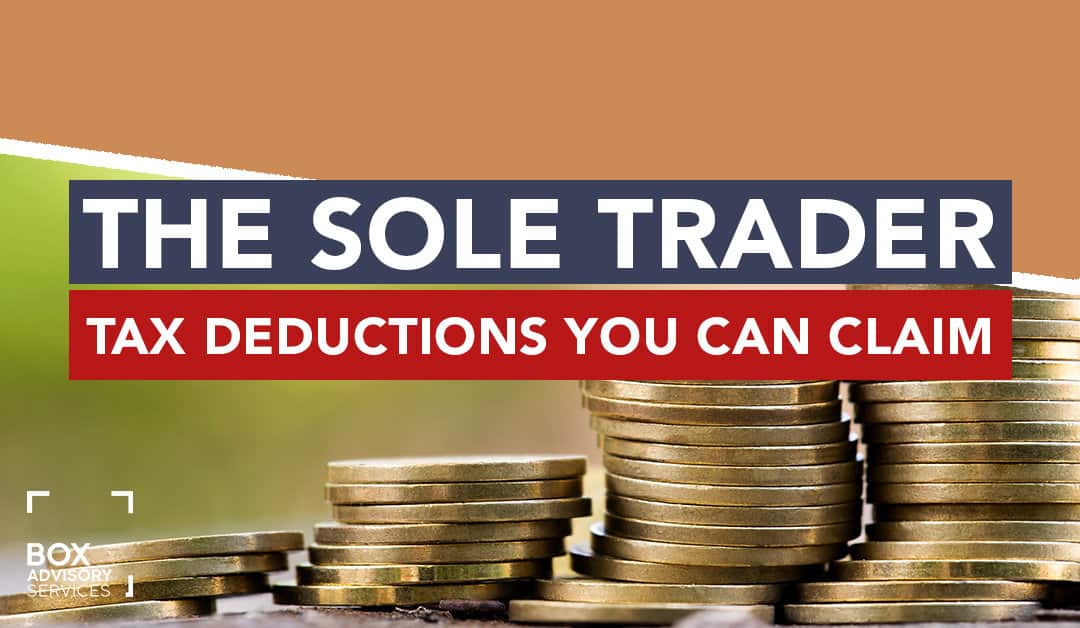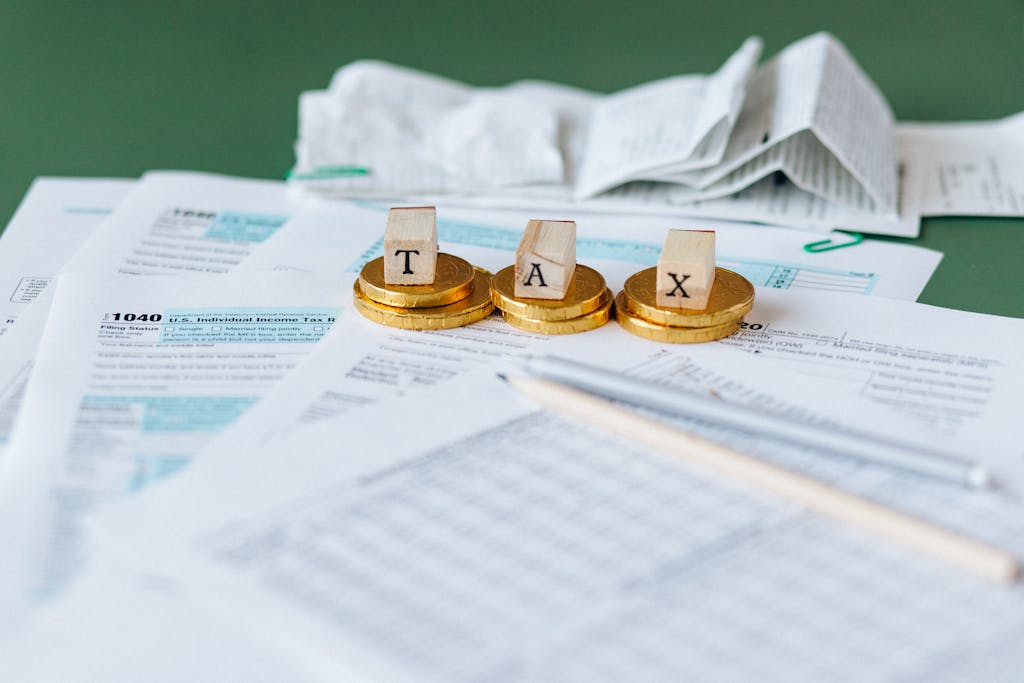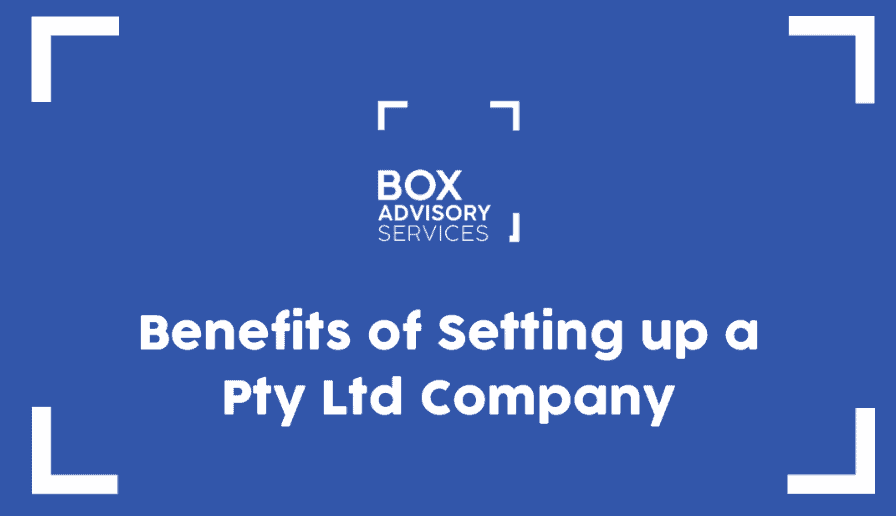
BY
|
The 6 Sole Trader Deductions You Can Claim
Knowing about your sole trader tax deductions will undoubtedly boost your tax return each year. Many of the costs that you incur from running your sole trader business can be claimed as a tax deduction.
Yet, many sole traders miss out on expense claims because they aren’t equipped with all the knowledge presented by the Australian Tax Office (ATO).
But what exactly can you claim on tax as a sole trader?
The following list will equip you with some useful tips on the best way to claim as many sole trader tax deductions as possible.
Understanding the Difference Between Sole Traders and Other Businesses
Before jumping into the list of sole trader tax deductions, it’s necessary that you understand the difference between claiming these deductions as a sole trader versus as a company.
Simply put, sole traders are taxed as an individual. This means that you’ll need to report your business income in your personal tax return.
The amount of tax you pay depends on whether you fall below the tax threshold and the deductions you can claim. Sole traders pay tax at the individual income rate.
On the other hand, companies are taxed as a separate entity, and the director is responsible for reporting the income generated by the business, in the company’s tax return. There is no tax-free threshold for companies.
To access the essential comparison guide for sole traders and companies, read more here.
What Sole Trader Tax Deductions Can You Claim?
As a sole trader, you can claim certain tax deductions on expenses you incurred while carrying out your business.
1. Running Expenses
According to the ATO, if you incur any of these running expenses, you can generally claim them in your annual personal tax return:
- general home office costs such as stationery, printer ink and paper;
- home office equipment such as computers, printers, furniture and phones
- utilities such as internet, aircon, electricity, gas and telephone lines;
- cleaning costs; as well as
- repair costs such as fixing your office furniture or other office fittings
2. Depreciation
As your business assets get older, they are subject to general wear and tear. In other words, each year, the value of the assets decrease and thus depreciates.
The ATO allows sole traders, who use certain assets to generate income for their business, to claim depreciation as a sole trader tax deduction.
Generally, you can claim depreciation on the following business assets:
- laptops or desktop computers;
- printers and photocopiers;
- carpets or other floorings;
- motor vehicles;
- curtains; and
- office furnishings
Claiming depreciation as a sole trader involves following the same steps required by a small business. To help make the process of claiming tax deductions simpler, the ATO introduced simplified depreciation rules for small businesses.
For more on how to claim depreciation, you can access our ultimate guide here.
3. Occupancy Expenses
If you work from home, you can claim occupancy expenses relating to the portion of your home that you use to carry out your business. These expenses can include:
- rent or interest on a mortgage;
- property insurance;
- land taxes; and
- council rates
To qualify to claim a share of your occupancy expenses for your home-based business, you will have to pass the interest deductibility test.
The test involves determining whether or not the space that you’ve set aside in your home has the character of a place of business.
The ATO proposes specific indicators of a character place of business, such as:
- the area set aside is exclusively (or at least almost exclusively) used for business use;
- the area is clearly marked as your place of business, with a sign for example;
- the area is not easily converted into a space that can be used for private or domestic purposes such as a spare guest room, for example; and
- your clients regularly visit you in this area
To calculate the portion of your home that you use for work purposes, you’ll need to multiply the percentage of the floor area you use for your home office by your total occupancy expenses.
Example:
Phoebe is a sole trader operating her hairdresser’s salon from home. All her work is primarily done in the garage, which she has converted to her salon.
As the salon space is exclusively used to carry out her hairdresser business, Phoebe passes the interest deductibility test.
Therefore, she can claim occupancy expenses.
Phoebe’s salon covers 17% of the floor area of her home, so she can claim deductions for 17% of the cost for her insurance premiums, council rates as well as the interest on her mortgage.
4. Prepaid Expenses
A commonly overlooked sole trader tax deduction is prepaid expenses. If you can pay some of your business expenses in advance, you won’t have to worry about paying them the next year, and you can claim them as a tax deduction in the current year.
Examples of expenses you can prepay include:
- rent;
- service contracts;
- conference bookings or training;
- travel expenses; and
- professional application subscriptions
5. Superannuation Fund Contributions
You can claim up to $25,000 of your superannuation fund contributions as a sole trader tax deduction.
6. Bad Debts
If you aren’t able to retrieve debt from one or more of your clients, it is possible to write these debts off and claim a sole trader tax deduction.
However, you must have all records to prove that you:
- communicated to the debtor about their outstanding payments;
- sent sufficient reminder notices;
- have taken action to determine your debtor’s financial position; and
- taken appropriate debt recovery steps to retrieve the debt
After taking all the necessary steps, if you can prove that you’re not able to retrieve the debt, you should be able to claim this as a tax deduction.
Key Takeaways
Sole trader tax deductions are a great way to save money, especially if you know exactly what you can claim and how to claim them.
By arming yourself with this knowledge, you will be in the best position to take advantage of all the tax return opportunities available to you as a sole trader.
Remember: you can’t claim any of the listed expenses as sole trader tax deductions without proof. Make sure you always keep receipts, invoices, and any other documents relating to the business portion of your expenses incurred.
To maximise your tax return, make sure you use Box Advisory Services’ guide to eligible tax deductions or book a free appointment with us to find out more.



